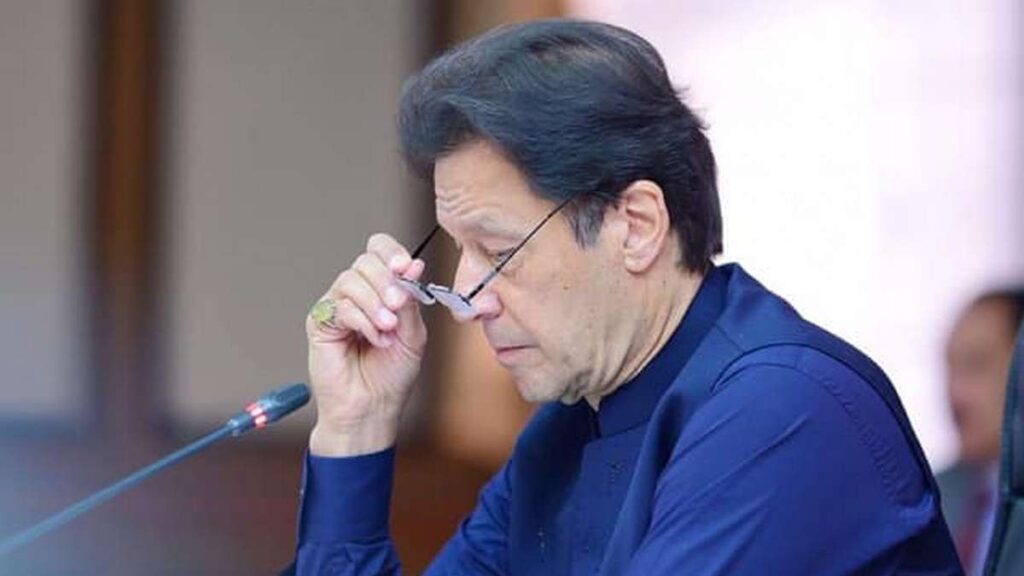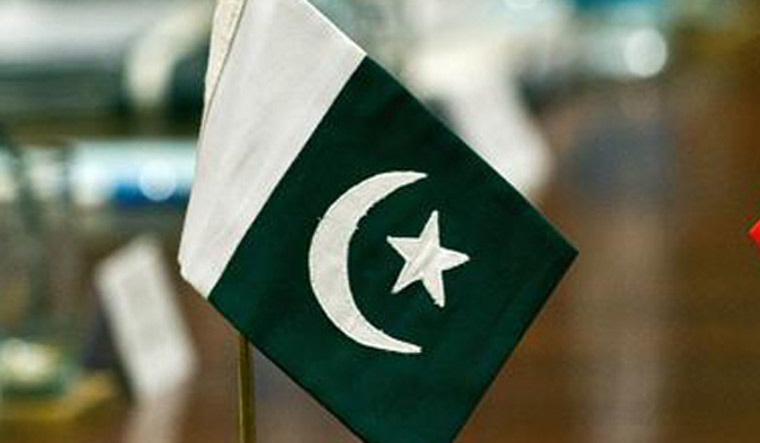ISLAMABAD: In just one-week time, all the foes of Pakistan in Afghanistan have no option but to flee to different countries after Taliban took the control of the country, including Kabul on Monday. Afghan President Ashraf Ghani, who blamed Pakistan for turmoil in Afghanistan in a conference in July, fled from Kabul on a helicopter, loaded with his plundered millions of dollars.
Meanwhile, some ministers of Afghan government and leaders, who used to be staunch enemies of Pakistan and agents of RAW and other agencies, too have disappeared the moment the Taliban entered Kabul.
Indian diplomats and others who were freely using land of Afghanistan for terrorism against Pakistan have also rushed back to their country, India, after seeing consistent victories of the Taliban in Afghanistan. Nearly a dozen foreign missions of India were operating in Afghanistan which have been shut down.
Amazingly, not a single terrorist attack had been reported in Pakistan in the last one week as the Taliban kept on sweeping provincial capitals and towns before capturing Kabul on Monday, July 16. In other words, victories of the Taliban have shattered anti-Pakistan terrorism networks being operated from Afghanistan. Now Pakistan can see some relief, may be temporary, in incidents of attacks on security personnel, bomb blasts in Quetta, Khyber Pakhtunkhwa, etc.
While Indians and Americans are mourning over victories of the Taliban in Afghanistan, we believe in Pakistan that all the cruel and professional foes of Pakistan, sitting in Afghanistan, have faced the wrath of the nature for supporting militancy, terrorism, and fled from their own country to save their lives and wealth in the wake of take-over of Afghanistan by Taliban.

Prime Minister Imran Khan gave a shut-up call to Ashraf Ghani at an international conference in Tashkent, Uzbekistan in July 2021, when Ghani blamed Pakistan for crisis in Afghanistan.
Meanwhile, the United States top officials who were daily putting pressure on Pakistan to influence Taliban for dialogues and blaming Pakistan for supporting Taliban were not only facing world’s wrath but also having shame in shameful defeat in the war-torn country after hasty decision of the withdrawal of troops.
The former US President Trump and the top UK officials have denounced the US President Biden’s decision of early withdrawal of troops from Afghanistan that gave a golden opportunity to the Taliban to regain power in the country.
Trump said the Biden’s decision of withdrawal of troops has made Afghanistan ‘a graveyard of superpower’ in the wake of defeat to Afghan forces and abrupt withdrawal of troops.

The officials of the United Kingdom too have termed untimely and unwise decision of Biden that created anarchy in Afghanistan created an environment for the Taliban to capture the whole country in one-week time.
Biden, however, held Afghan security official and government leaders responsible for sudden rise of the Taliban in the country.
On Monday, daily Washington Post reported that corruption, greed, and incompetence in the Afghan security officials drained more than $83 billion that United States provided to Afghanistan as security assistance. Since 2002, the United States has allocated more than $83 billion in security assistance to Afghanistan, a sum that dwarfs the defense budgets of other developing nations. In 2011, at the peak of the war, Afghanistan received $11 billion in security aid from Washington — $3 billion more than what neighboring Pakistan, which has a stockpile of nuclear weapons and a far bigger army, spent that year on its military. Daily Washington Post has made these startling disclosures in its investigative article on Afghanistan in the wake of stunning victory of the Taliban and shocking defeats of Afghan security forces after withdrawal of troops.
Yet after almost two decades of help from Washington, the Afghan army and police are still too weak to fend off the Taliban, the Islamic State and other insurgents without U.S. military backup.
Victor Glaviano, who worked with the Afghan army as a U.S. combat adviser from 2007 to 2008, called the soldiers “stealing fools” who habitually looted equipment supplied by the Pentagon.

Ryan Crocker, a former U.S. ambassador to Kabul, told government interviewers that the Afghan police were ineffective “not because they’re out-gunned or out-manned. It’s because they are useless as a security force and they’re useless as a security force because they are corrupt down to the patrol level.”
In one interview, Thomas Johnson, a Navy official who served as a counterinsurgency adviser in Kandahar province, said Afghans viewed the police as predatory bandits, calling them “the most hated institution” in Afghanistan. An unnamed Norwegian official told interviewers that he estimated 30 percent of Afghan police recruits deserted with their government-issued weapons so they could “set up their own private checkpoints” and extort payments from travelers.
Government watchdogs and journalists have chronicled severe shortcomings with the Afghan security forces over the years. But the interview records obtained by The Post contain new insights into what went wrong and expose gaping contradictions between what U.S. officials said in public and what they believed in private as the war unfolded.

On paper, the Afghan security forces look robust, with 352,000 soldiers and police officers. But the Afghan government can prove only that 254,000 of them serve in the ranks.
For years, Afghan commanders inflated the numbers so they could pocket salaries — paid by U.S. taxpayers — for no-show or imaginary personnel, according to U.S. government audits. As a result, Washington now asks the Afghans to produce biometric data, including fingerprints and face scans, to verify the existence of people in uniform.
The army and police have suffered so many casualties that the Afghan government keeps the exact numbers a secret to avoid destroying morale. Estimates are that more than 60,000 members of Afghan security forces have been killed, about 17 times the number of U.S. and NATO troops who have lost their lives.

The national army accounts for most of the Afghan security forces, with about 162,000 troops. It reports to the Defense Ministry and includes the Afghan air force and other units.
The national police number about 91,000. They report to the Interior Ministry and are more of a paramilitary force than a crime-fighting agency. The police guard the border, staff security checkpoints and try to hold territory that the army has cleared of insurgents.
With the Afghan security forces lagging in quantity and quality, the U.S. military has been unable to extricate itself from the faraway conflict. Although the number of U.S. troops in Afghanistan has dwindled from 100,000 eight years ago to 13,000 today, the Trump administration has had to escalate the war from the skies to prevent the Taliban from taking over.
Meanwhile, the US experts have pointed out that in the past two decades, the United States has spent more than $2 trillion in Afghanistan, which have gone down the drain as the Taliban have regained control of their country.
Since 2001, the US has spent $2.26 trillion in Afghanistan, the Costs of War Project at Brown University calculates. The biggest chunk – nearly $1 trillion – was consumed by the Overseas Contingency Operations budget for the Department of Defense. The second biggest line item – $530 billion – is the estimated interest payments on the money the US government borrowed to fund the war.
Yet for all those trillions, Afghanistan still has one of the smallest formal economies on the planet. Last year, President Ashraf Ghani said 90 percent of the population was living on less than $2 a day.
The illicit economy, meanwhile, has boomed. After US forces drove the Taliban from power in 2001, Afghanistan cemented its place as the leading global supplier of opium and heroin – a crown it is likely to keep as the Taliban emerge victorious again.

There is no shortage of benchmarks to count the cost of the United States’ longest war. Blood is by far the most precious metric. Treasure feels insignificant by comparison. But as images of Afghans swarming Kabul airport, desperately trying to flee Taliban rule, flood screens around the world, the vast sums the US spent trying to build Afghanistan into a liberal democracy deserve a thorough audit, Al-Jazeera reported today. Otherwise, lessons may be forgotten and tragic mistakes repeated.
If that return weren’t poor enough for the US, the Afghan army and the government it was meant to protect have now collapsed. President Ashraf Ghani has fled the country and the Taliban are taking selfies behind his desk. This is what a $2 trillion investment has yielded for the US: a chaotic, humiliating end to a 20-year war.

The bedrock of any nation-building effort is security. If people don’t feel safe, instability, graft and corruption flourish while the formal economy withers.
Back in 2001, Afghanistan’s economy lay in ruins due to more than two decades of war that predated the US-led invasion in October of that year.
A grim ledger
Since 2001, the US has appropriated more than $144bn to Afghan reconstruction. Much of that money went to private contractors and NGOs the US government tasked with implementing programmes and projects to build Afghanistan’s security forces, improve governance, aid economic and social development and combat illicit drugs.
The most critical failure of those reconstruction efforts – and the most expensive – was the $88.3bn spent training and equipping the Afghan army from May 2002 to March this year.
The Afghan army was tasked with repelling the Taliban and other armed groups like al-Qaeda and ISIL that posed an existential threat to the US-backed Afghan government. But the swiftness with which the 300,000-strong force laid down arms in the face of the Taliban’s advance betrayed how little faith the country’s soldiers had in the institution they served and the national government they had sworn to defend.
Afghanistan’s unique historical and cultural factors undoubtedly helped shape that outcome. But poor monitoring and evaluation of US efforts are also to blame for throwing good money after bad.
That is why the US Congress created SIGAR – the Special Inspector General for Afghanistan Reconstruction. Since 2008, it has been auditing and assessing Washington’s reconstruction efforts in Afghanistan. The reports it churns out have been notable for their prescience and their propensity to pull no punches when it comes to highlighting waste, fraud and abuse.
For example, a 2017 report on US efforts to train Afghan security forces found that Washington’s “politically constrained” timelines “consistently underestimated the resilience of the Afghan insurgency” while overestimating the capabilities of Afghan government forces. The US also erred, said SIGAR, by trying to graft advanced western weapons and management systems onto a largely illiterate fighting force – perpetuating Afghan dependence on US forces rather than creating an Afghan army that could stand and fight on its own. SIGAR also found that the tools that were used to monitor and evaluate the progress of US training efforts masked “intangible factors, such as corruption and will to fight”.
Last month, SIGAR published its 10th report on “Lessons Learned” in Afghanistan. “In unpredictable and chaotic environments such as Afghanistan, poor oversight or improper implementation can threaten relationships with local communities, endanger the lives of U.S. and Afghan government personnel and civilians, and undermine strategic goals,” Inspector General John F Sopko wrote in the executive summary.
At 324 pages, the report makes for dense but important reading. Having had a front-row seat to the slow-motion train wreck of American involvement in Afghanistan, Sopko highlighted where the real impact of his office’s work would likely be felt.
Since 2001, the US has spent $2.26 trillion in Afghanistan, the Costs of War Project at Brown University calculates. The biggest chunk – nearly $1 trillion – was consumed by the Overseas Contingency Operations budget for the Department of Defense. The second biggest line item – $530 billion – is the estimated interest payments on the money the US government borrowed to fund the war.
Yet for all those trillions, Afghanistan still has one of the smallest formal economies on the planet. Last year, President Ashraf Ghani said 90 percent of the population was living on less than $2 a day.
The illicit economy, meanwhile, has boomed. After US forces drove the Taliban from power in 2001, Afghanistan cemented its place as the leading global supplier of opium and heroin – a crown it is likely to keep as the Taliban emerge victorious again.

There is no shortage of benchmarks to count the cost of the United States’ longest war. Blood is by far the most precious metric. Treasure feels insignificant by comparison. But as images of Afghans swarming Kabul airport, desperately trying to flee Taliban rule, flood screens around the world, the vast sums the US spent trying to build Afghanistan into a liberal democracy deserve a thorough audit, Al-Jazeera reported today. Otherwise, lessons may be forgotten and tragic mistakes repeated.
If that return weren’t poor enough for the US, the Afghan army and the government it was meant to protect have now collapsed. President Ashraf Ghani has fled the country and the Taliban are taking selfies behind his desk. This is what a $2 trillion investment has yielded for the US: a chaotic, humiliating end to a 20-year war.

The bedrock of any nation-building effort is security. If people don’t feel safe, instability, graft and corruption flourish while the formal economy withers.
Back in 2001, Afghanistan’s economy lay in ruins due to more than two decades of war that predated the US-led invasion in October of that year.
A grim ledger
Since 2001, the US has appropriated more than $144bn to Afghan reconstruction. Much of that money went to private contractors and NGOs the US government tasked with implementing programmes and projects to build Afghanistan’s security forces, improve governance, aid economic and social development and combat illicit drugs.
The most critical failure of those reconstruction efforts – and the most expensive – was the $88.3bn spent training and equipping the Afghan army from May 2002 to March this year.
The Afghan army was tasked with repelling the Taliban and other armed groups like al-Qaeda and ISIL that posed an existential threat to the US-backed Afghan government. But the swiftness with which the 300,000-strong force laid down arms in the face of the Taliban’s advance betrayed how little faith the country’s soldiers had in the institution they served and the national government they had sworn to defend.
Afghanistan’s unique historical and cultural factors undoubtedly helped shape that outcome. But poor monitoring and evaluation of US efforts are also to blame for throwing good money after bad.
That is why the US Congress created SIGAR – the Special Inspector General for Afghanistan Reconstruction. Since 2008, it has been auditing and assessing Washington’s reconstruction efforts in Afghanistan. The reports it churns out have been notable for their prescience and their propensity to pull no punches when it comes to highlighting waste, fraud and abuse.
For example, a 2017 report on US efforts to train Afghan security forces found that Washington’s “politically constrained” timelines “consistently underestimated the resilience of the Afghan insurgency” while overestimating the capabilities of Afghan government forces. The US also erred, said SIGAR, by trying to graft advanced western weapons and management systems onto a largely illiterate fighting force – perpetuating Afghan dependence on US forces rather than creating an Afghan army that could stand and fight on its own. SIGAR also found that the tools that were used to monitor and evaluate the progress of US training efforts masked “intangible factors, such as corruption and will to fight”.
Last month, SIGAR published its 10th report on “Lessons Learned” in Afghanistan. “In unpredictable and chaotic environments such as Afghanistan, poor oversight or improper implementation can threaten relationships with local communities, endanger the lives of U.S. and Afghan government personnel and civilians, and undermine strategic goals,” Inspector General John F Sopko wrote in the executive summary.
At 324 pages, the report makes for dense but important reading. Having had a front-row seat to the slow-motion train wreck of American involvement in Afghanistan, Sopko highlighted where the real impact of his office’s work would likely be felt.



1 Comment
PAKISTAN SHALL HAVETO BE MUCH MORE VIGILANT ABOUT NARCOTICS AND ARMS
SMUGGLING FROM THE AFGHNISTAN BORDER.IT WOULD ALSO REQUIRE TO KEEP A WATCH ON AFGHAN REFUGEES WHO HAVE PERMANENTLY SETTLED IN PAKISTAN AND ENJOY NADRA’S CNICs. in all major cities of the country.